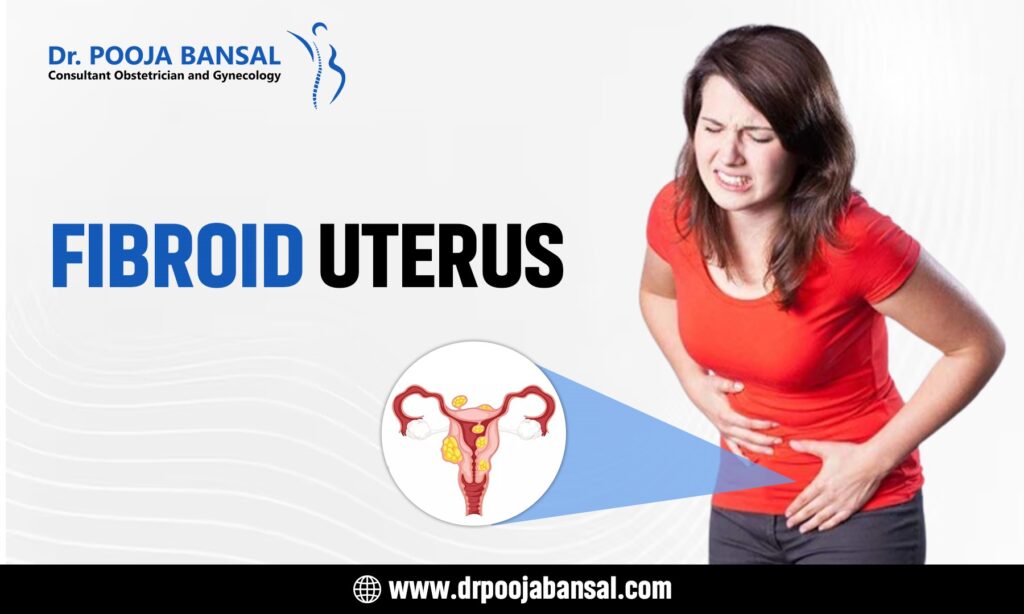Fibroids are non-cancerous growths that occur in the uterus. They are relatively common and are estimated to affect up to 80% of women by the age of 50. Although fibroids are not usually dangerous, they can cause a range of symptoms, including heavy bleeding, Pelvic Pain, and pressure on the bladder or bowel. If you are struggling with fibroids, you may be wondering why they have developed and what you can do to manage them. we will explore some of the possible reasons why you might be struggling with a fibroid uterus,
Symptoms you are struggling with Fibroid Uterus?
Hormonal Imbalances:
- Hormonal imbalances can contribute to the development of fibroids.
- Specifically, high levels of estrogen can stimulate the growth of fibroids.
- Estrogen dominance can occur for several reasons, including exposure to (Environmental toxins, Stress, or Poor diet.)
- Addressing hormonal imbalances through lifestyle changes or hormone therapy may help to manage fibroids.
Genetics:
- Fibroids tend to run in families, suggesting that genetics may play a role in their development.
- If you have a family history of fibroids, you may be more likely to develop them yourself.
Age:
- Fibroids are most commonly diagnosed in women between the ages of 30 and 50. As you age, your risk of developing fibroids increases.
Obesity:
- Obesity is a known risk factor for the development of fibroids.
- It is thought that excess body fat may increase estrogen levels, which can stimulate the growth of fibroids.
Other Medical Conditions:
- Certain medical conditions, such as endometriosis or adenomyosis, can increase your risk of developing fibroids.
- These conditions involve the growth of tissue outside the uterus, which can cause inflammation and hormonal imbalances that may contribute to fibroid development.
Lifestyle Factors:
- Certain lifestyle factors, such as a poor diet, lack of exercise, and high stress levels, may contribute to the development of fibroids.
- Making changes to your lifestyle, such as eating a healthy diet, exercising regularly, and practicing stress-reducing techniques, may help to manage fibroids.
FAQ:
- What are fibroids?
Fibroids are non-cancerous growths that occur in the uterus. They can vary in size and number and are estimated to affect up to 80% of women by the age of 50.
- What are the symptoms of fibroids?
The symptoms of fibroids can vary depending on the size and location of the growths. Some common symptoms include heavy or prolonged menstrual bleeding, pelvic pain, pressure on the bladder or bowel, frequent urination, and constipation.
- What causes fibroids?
The exact cause of fibroids is unknown, but they are thought to be influenced by a combination of genetic, hormonal, and environmental factors. Certain risk factors, such as age, obesity, and a family history of fibroids, may increase your chances of developing them.
- How are fibroids diagnosed?
Fibroids are usually diagnosed through a pelvic exam, ultrasound, or MRI. In some cases, a biopsy may be needed to confirm the diagnosis.
- What are the treatment options for fibroids?
Treatment options for fibroids can vary depending on the severity of the symptoms and the size and location of the growths. Some common treatments include medication to manage symptoms, surgery to remove the fibroids, or uterine artery embolization, which involves cutting off the blood supply to the fibroids.
There are several reasons why you may be struggling with a fibroid uterus, including hormonal imbalances, genetics, age, obesity, other medical conditions, and lifestyle factors. If you are experiencing any of above symptoms or have any other doubts.
- Consult: Gynecologist in Navi Mumbai.
- Visit us Now.

